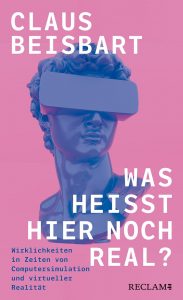Was heißt hier noch real?
 Wie viel Wirklichkeit wollen wir? Virtuelle Realität zwischen Utopie und Weltflucht.
Wie viel Wirklichkeit wollen wir? Virtuelle Realität zwischen Utopie und Weltflucht.
Unser Zugang zur Wirklichkeit wird zunehmend durch Computer geprägt. Denn mit Hilfe von Computersimulationen lässt sich virtuelle Realität (VR) erzeugen. VR hilft in der Forschung, das Wissen zu erweitern. Sie wird in der Ausbildung eingesetzt, um medizinische Eingriffe oder das Lenken eines Flugzeugs zu üben. Schließlich verschafft sie uns in Spielen Erlebnisse, die in der bekannten Realität kaum zu haben sind.
Letztlich können wir aber nur dann von VR profitieren, wenn wir wirklich verstehen, was sie ist und wie sie entsteht. Und wir müssen uns ebenso darüber klarwerden, ob der Aufenthalt in ihr unser Leben wirklich besser macht. Denn von virtuellem Brot allein können wir nicht leben. Müssen wir also auch der Original Reality (OR) treu bleiben?
Autor
Claus Beisbart, geb. 1970, Professor für Philosophie mit Schwerpunkt Wissenschaftsphilosophie an der Universität Bern, forscht über computerbasierte Methoden in den Wissenschaften und über Künstliche Intelligenz.
Was heißt hier noch real?
Autor: Claus Beisbart
175 Seiten, TB.
Reclam Verlag
Euro 18,00 (D)
ISBN 978-3-15-011472-8



